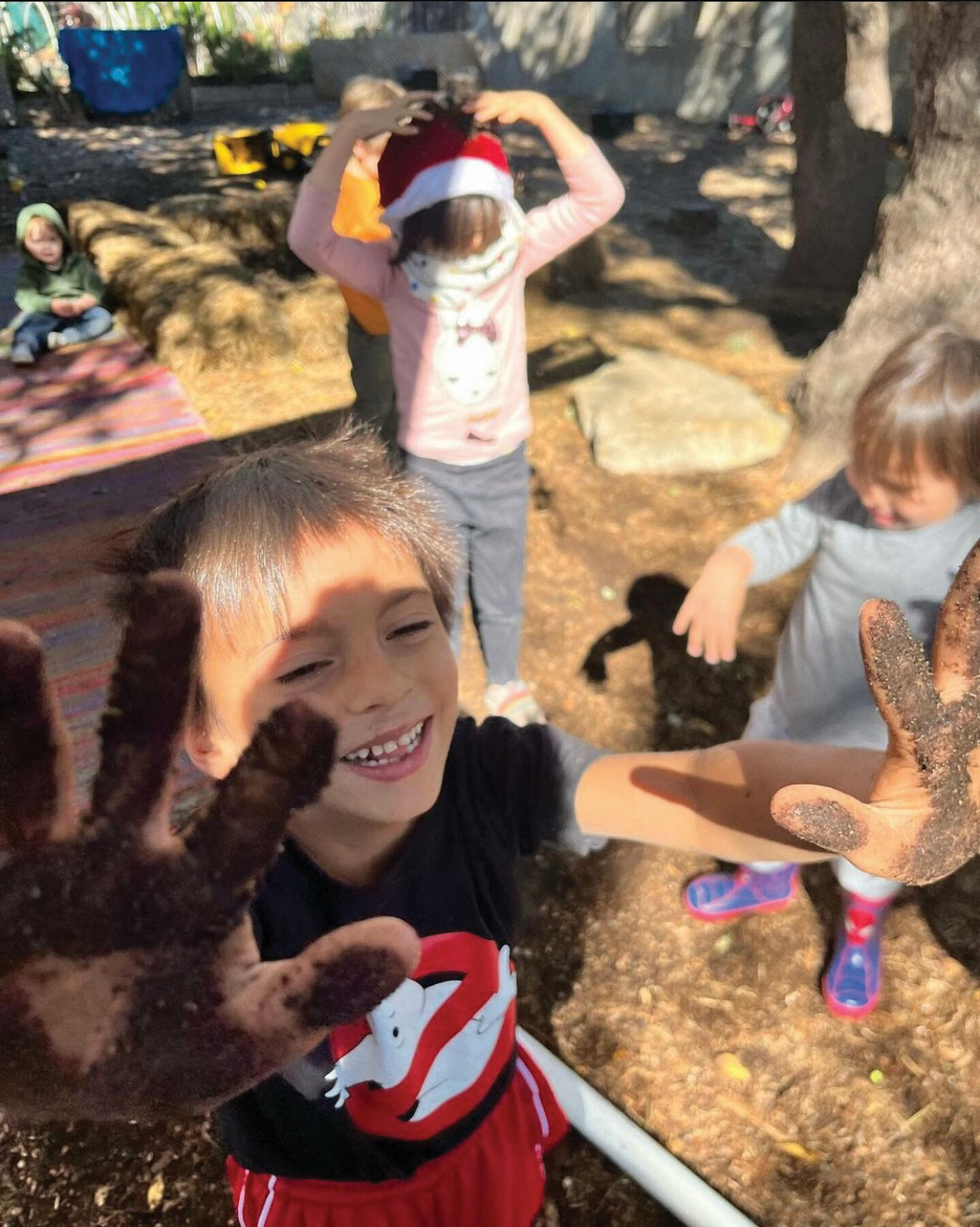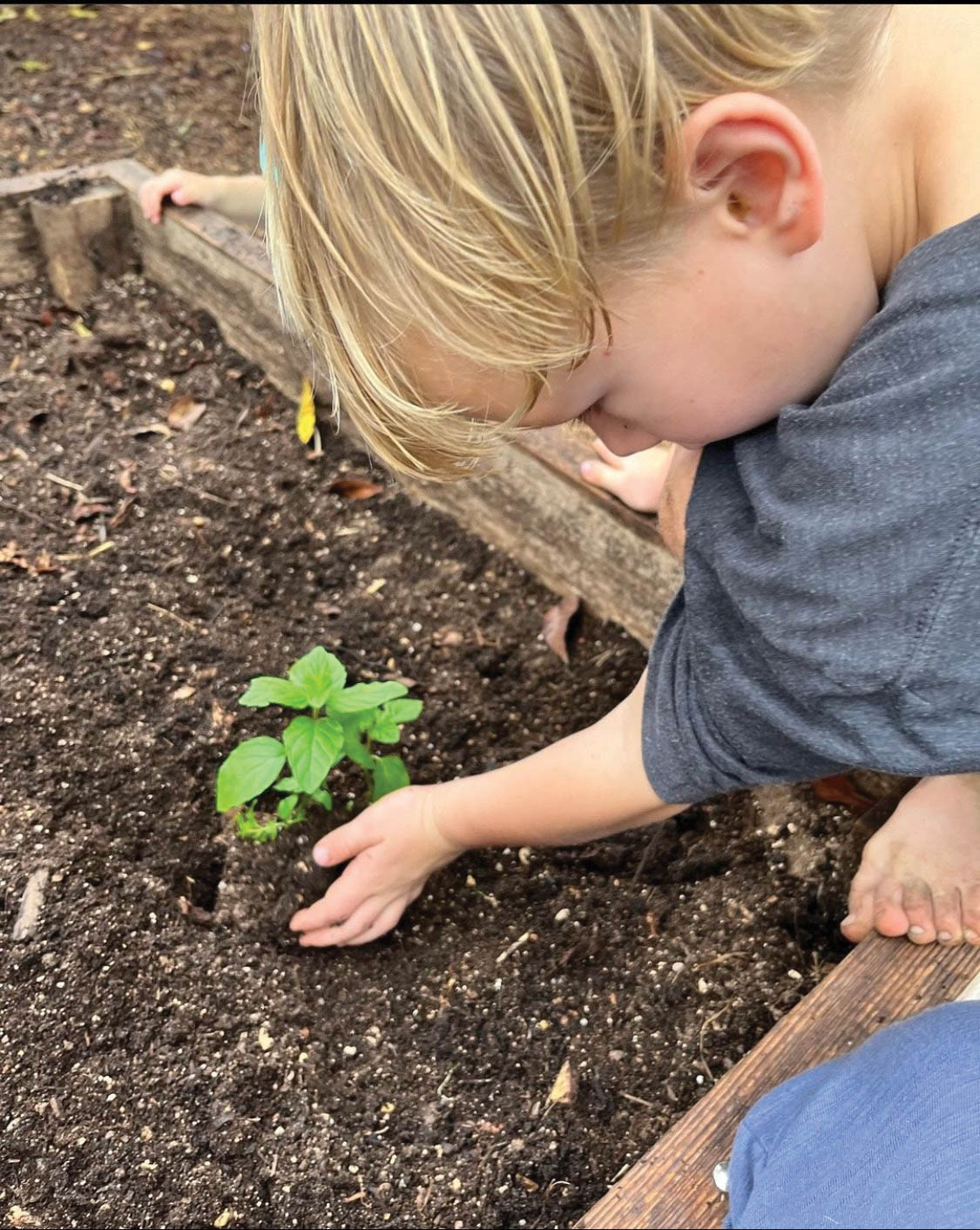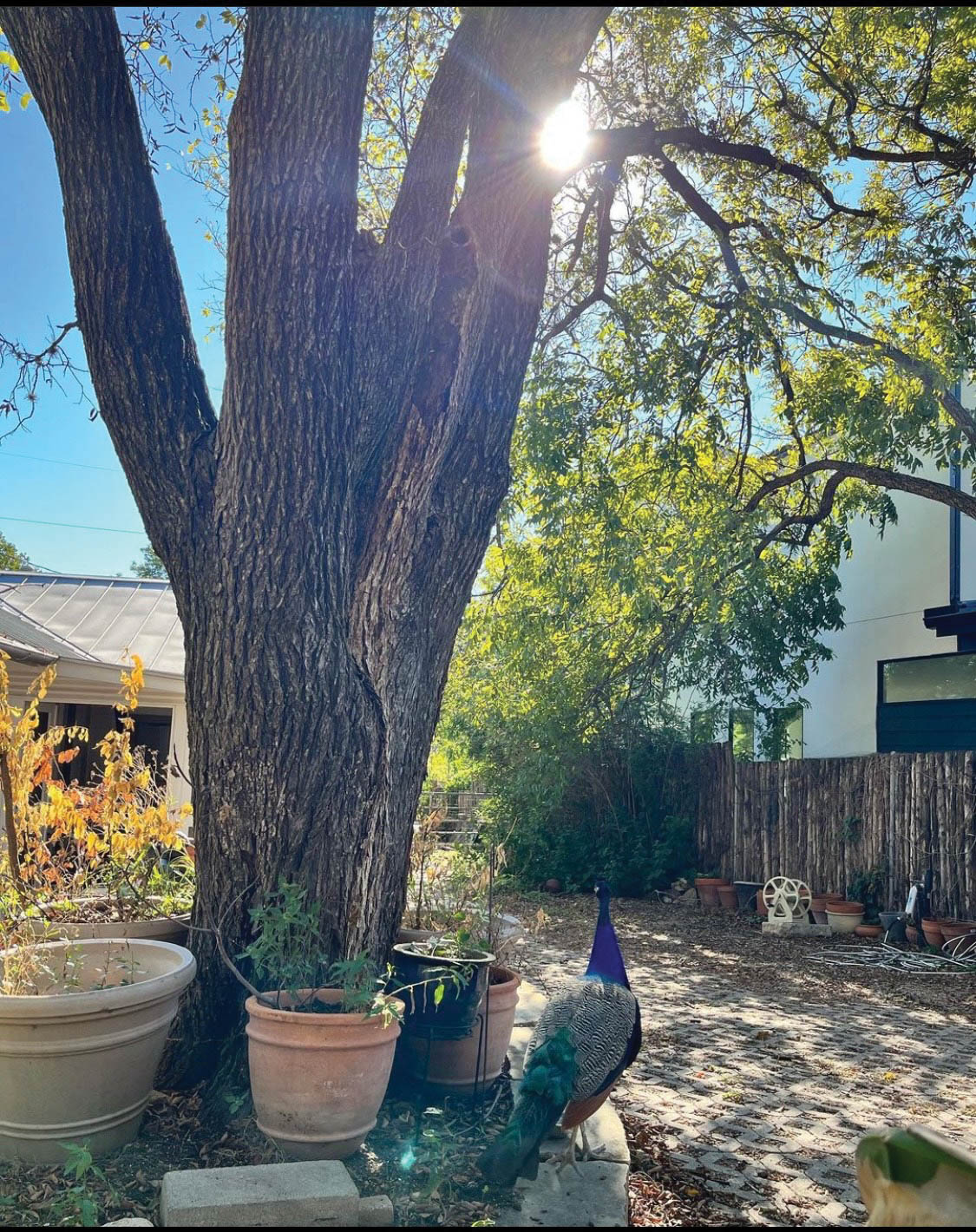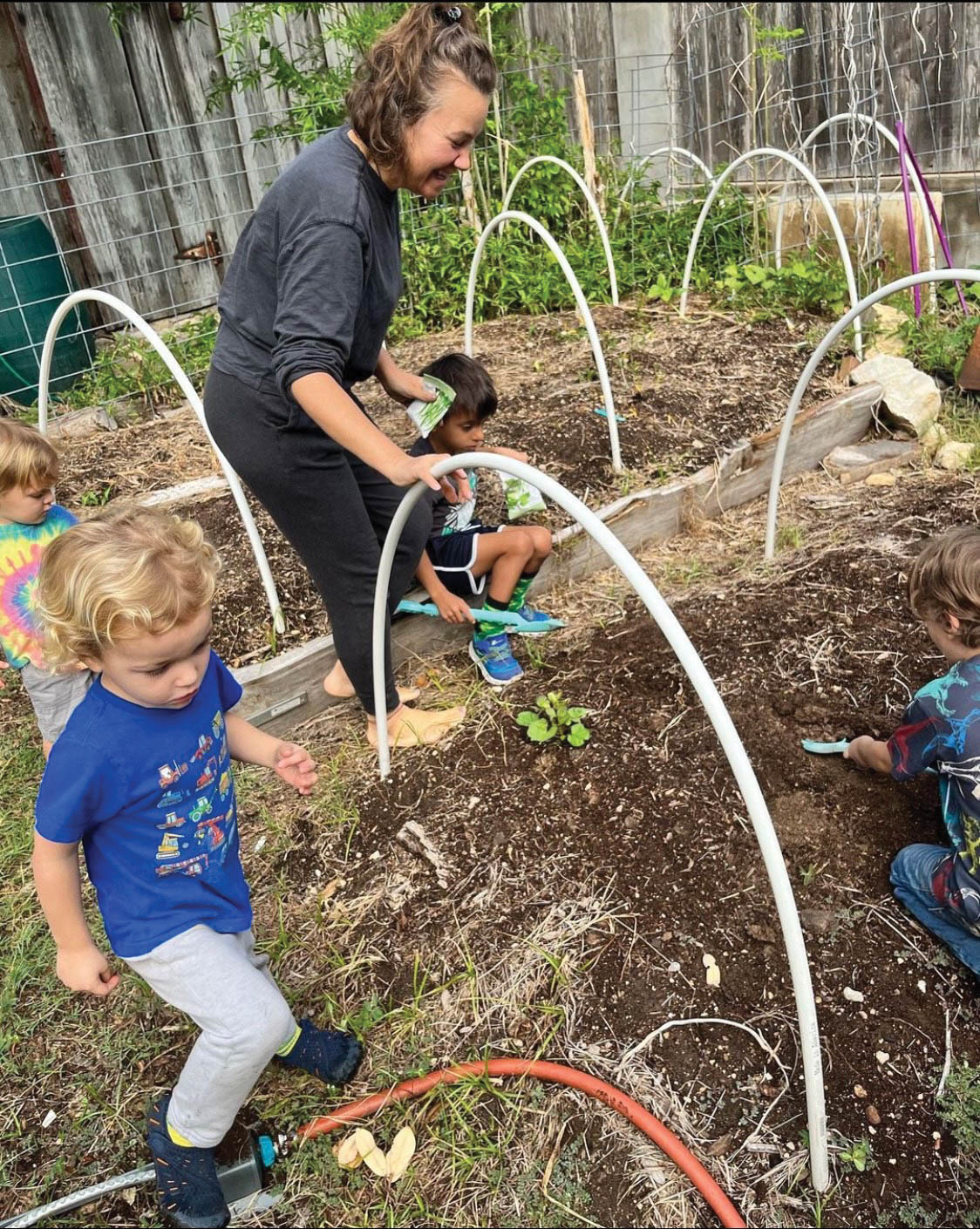Austin Children’s Garden Helps Kids Hone Their Superpowers Through Nature-Based Play

Georgina Guerrero was picking up her son from preschool when she saw a couple of young students climbing a tree in the courtyard. Though it was an endearing sight, she had forgotten the last time she saw a kid climbing a tree; this harsh reality made her realize how much we rely on technology now.
Older generations who weren’t saturated with technology spent more time outdoors as children. But nowadays, children are more focused on electronics. Studies have shown that spending time online has become one of the leading activities for children and teenagers.

Guerrero was one of many parents who didn’t want her child to fall into this sedentary lifestyle, so she enrolled her son in Austin Children’s Garden.
“One thing that was really important for me was (having my son) being outdoors and exploring because he loves being outside,” Guerrero says. “We came across Austin Children’s Garden… it had everything I envisioned as far as kids being outside a ton, a large space of outdoor exploration, gardening and everything like that.”
Austin Children’s Garden is a preschool program that follows a holistic and experiential approach to education. They’re focused on nature-based learning, a type of education that allows kids to get down and dirty in nature and creativity.
Elisabeth McAllister, who has worked with children for over 20 years, took over the program early last year. She felt compelled to open a school that highlighted her values and made nature the kids’ classroom.

The school’s approach differs greatly from a traditional school. Austin Children’s Garden focuses more on the child and their choices; children are still given structure, but they have more power in making choices within that structure. This means deciding each day whether they want to participate in the indoor or outdoor classroom, something they always have access to. There’s also a heavy focus on hands-on lessons — from getting dirty while gardening to getting grounded with yoga.
“A lot of good educators believe that the hands are the first way we learn — by doing,” McAllister says. “This is what stays with you.”
Guererro says she loves the gardening element at Austin Children’s Garden because it inspires empathy through understanding that everything has life.
“If (kids) have respect for plant(s) and flowers, you can only hope and imagine what empathy they’ll have as adults toward other people,” Guerrero says.
Jessica Powers, another parent who enrolled her child in the program, also appreciates the nature-based environment that the school offers.

“The nature-based play programs I’ve been a part of seem to honor each child’s own development instead of pushing them to learn on a curriculum,” Powers says.
Another benefit of this holistic education is its impact on a child’s self-esteem and sense of community. McAllister says it’s easy for kids to compare themselves to their peers, especially if they’re a different kind of learner. Constant access to technology, especially, makes children mature — or feel like they must mature — much faster.
“Some of the beauty we offer is just allowing children to not have to hurry ahead, be any different (or) feel weird because they love this certain haircut or love to wear this certain outfit,” McAllister says. “We are just a loving, embracing community of whoever, and so we embrace differences.”
In an increasingly digital world, it’s easy for kids to miss out on playing outside in the dirt and instead are playing inside on their phones and tablets. But schools like Austin Children’s Garden allow kids to be kids and embrace the natural curiosity that comes with childhood.
“There’s gonna be plenty of time for lessons, work and all of the things down the line, education-wise,” McAllister says. “(But) we want to (prolong childhood) for as long as we can.”






